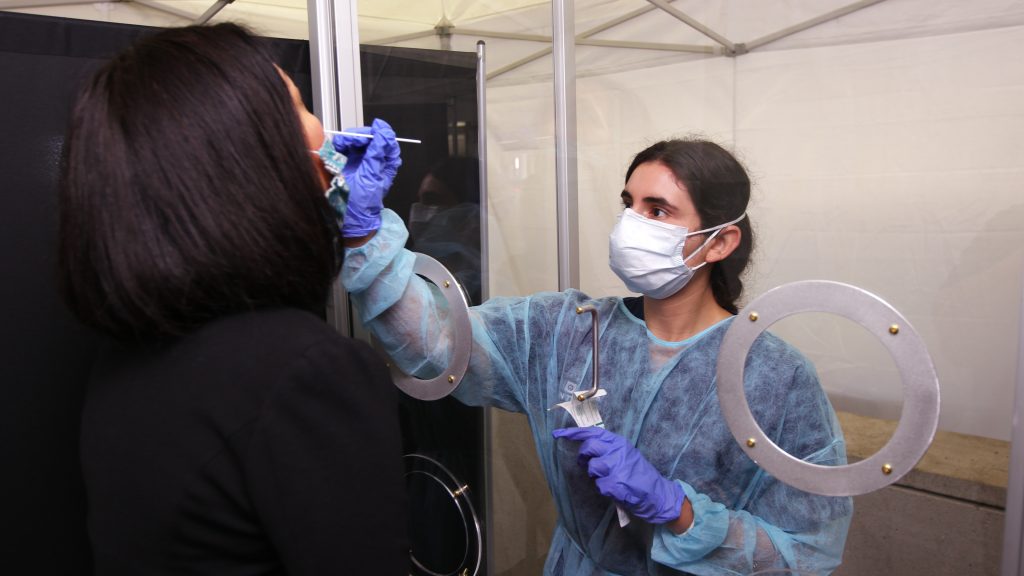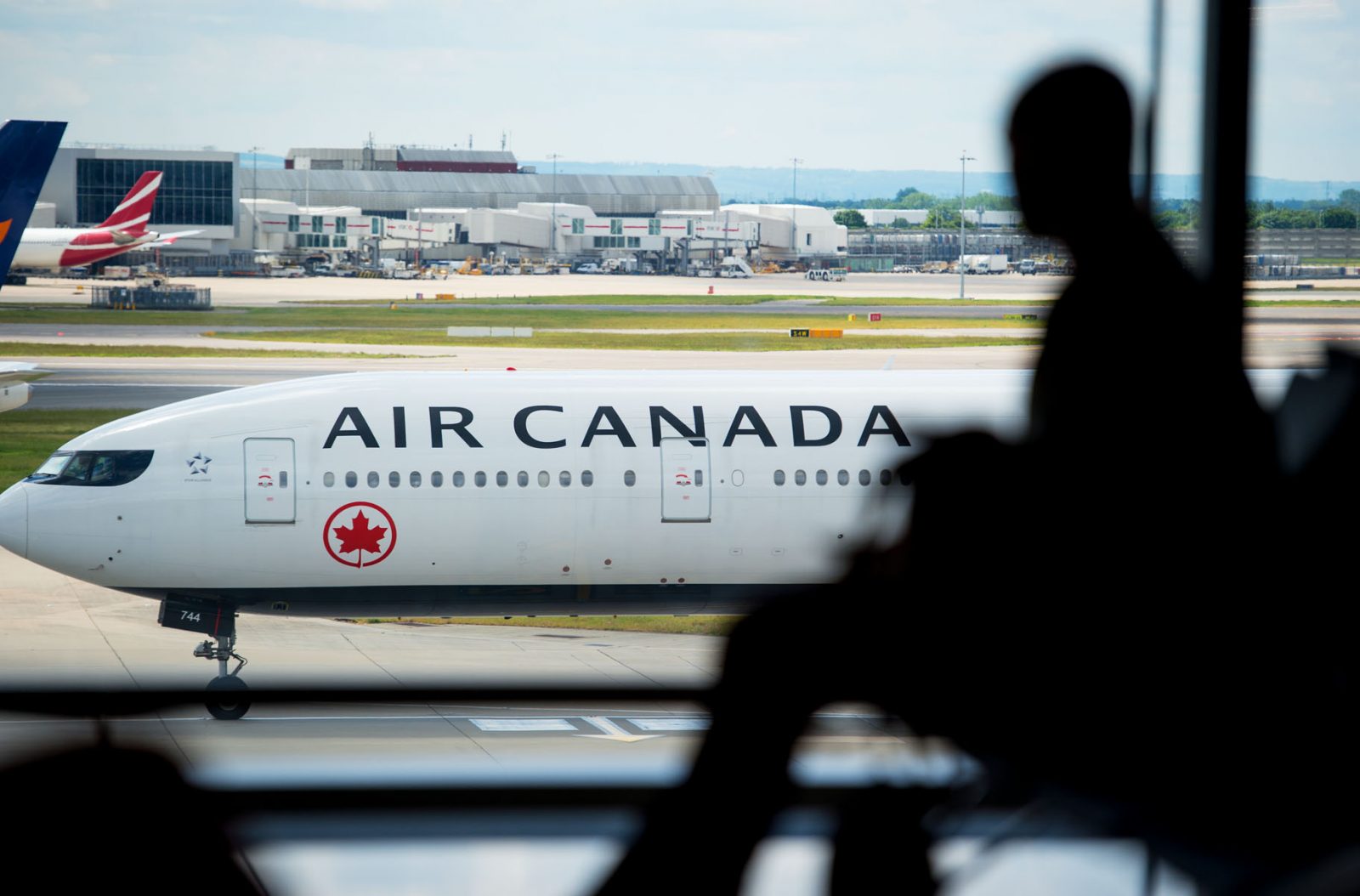Preliminary results from a major study looking at the effectiveness of airport COVID-19 testing on arrival has found that mandatory 14-day quarantine rules are locking people up unnecessarily with zero positive cases detected after day seven of self-isolation. The study commissioned by Air Canada in partnership McMaster HealthLabs (MHL) and Toronto Airport also found that just 1 per cent of arriving passengers tested positive for the novel Coronavirus after three ‘gold standard’ PCR swab tests.
“We are further encouraged in our belief in the effectiveness of testing, including self-administered testing, by the preliminary results from our partnership with MHL and the GTAA (Greater Toronto Airports Authority)”, commented Air Canada’s chief medical officer, Dr Jim Chung, after the results were published on Thursday.

“The preliminary results suggest a shorter, test-based strategy may be an available and safe alternative to the 14-day quarantine,” Dr Chung continued. The Canadian government currently forces all new international arrivals into quarantine, while a number of countries including the UK make people coming from ‘high risk’ countries self-isolate for 14-days.
Out of 13,000 tests so far completed on returning international travellers, less than 1 per cent have tested positive for COVID-19. Of the less than 1 per cent who did test positive, more than 80 per cent were detected during the initial test which is completed shortly after landing and before the passenger has left Toronto airport.
The remaining 20 per cent of positive cases were detected on day seven, while zero positive cases were detected by day 14.
Air Canada has been inviting international arriving passengers to volunteer for the study during their inbound flight and the final results will be subject to independent data analysis by the Dalla Lana School of Public Health at the University of Toronto. The study has so far been running for nearly four weeks.
The International Air Transport Association (IATA) has urged governments to scrap what it describes as “ineffective” quarantine rules and would instead like to see countries adopt mass pre-departure COVID-19 testing using rapid screening technologies that can provide results in just 15-minutes.
Air Canada announced on Thursday that it would start using a newly approved rapid test from Abbott on employees to test it’s effectiveness and in lieu of permission from the Canadian government to use the technology on passengers.
“We believe testing will be key to protecting employees and customers until such time as a COVID-19 vaccine is available,” Dr Chung explained. “Rapid testing is also a means to enable governments to relax current blanket travel restrictions and quarantines in a measured way while still safeguarding the health and safety of the public.”
Employee testing will be voluntary and Air Canada has bought an initial batch of 25,000 tests.
On Wednesday, the chief executive of Heathrow Airport said he was hopeful that airport arrival testing would start in mid-October. The airport has been pleading with the British government to approve COVID-19 testing to shorten the current 14-day quarantine period to just five days.
John Holland-Kaye remains optimistic that the £150 test would be approved in the coming weeks and that a London – New York ‘air bridge’ could be opened up in time for Thanksgiving. Demand for the tests, however, would likely far outstrip supply he warned.
The British government has remained reluctant to amend its current quarantine policy with Prime Minister Boris Johnson citing modelling that suggested airport testing would only pick up 7 per cent of positive cases. Already derided as outdated and inaccurate, that figure has now been conclusively debunked by this latest research.
Related
Mateusz Maszczynski honed his skills as an international flight attendant at the most prominent airline in the Middle East and has been flying ever since... most recently for a well known European airline. Matt is passionate about the aviation industry and has become an expert in passenger experience and human-centric stories. Always keeping an ear close to the ground, Matt's industry insights, analysis and news coverage is frequently relied upon by some of the biggest names in journalism.








